Russia’s invasion of Ukraine has united the West like never before in its outrage, condemnation of Putin, as well as support for Kyiv. The severity of the sanctions against the Kremlin is unseen on an international level. And the economic consequences—which are already noticeable—are going to be even more severe.
Phillip Ritz, an environment scientist at Columbia University, recently went viral after posting a video on TikTok where he analyzed what some of the short-term and long-term consequences of these economic sanctions will be like for Russia. He referred to some ideas put forth by Maxim Mironov, a professor of finance at the University of Chicago.
In short, the sanctions are going to have huge effects and will affect the Kremlin on every level. The hope is that this will weaken Russia’s further ability to wage war in Ukraine and may even lead to a regime change. Scroll down to read Phil’s thoughts, Pandas.
More info: TikTok | Twitter | Instagram
Phil Ritz voiced some of the thoughts shared by others about the effects that the economic sanctions will likely have on Putin and Russia
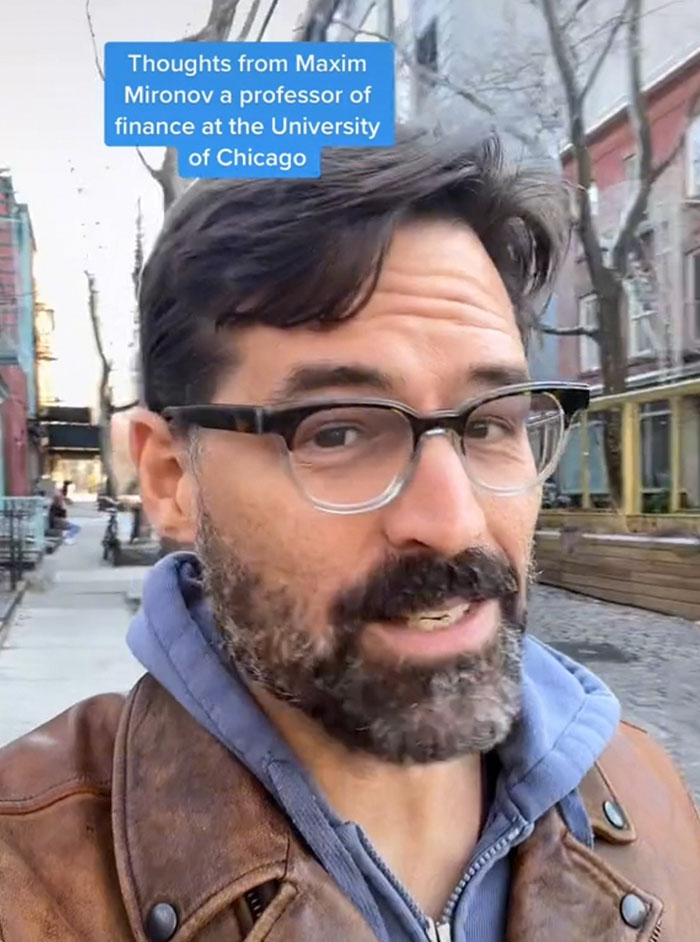
Image credits: philritz1
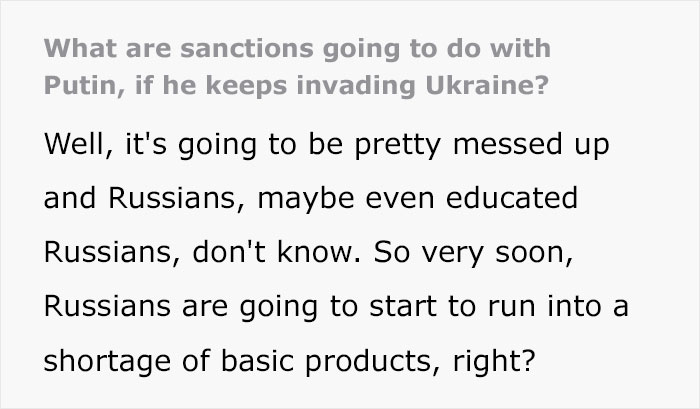
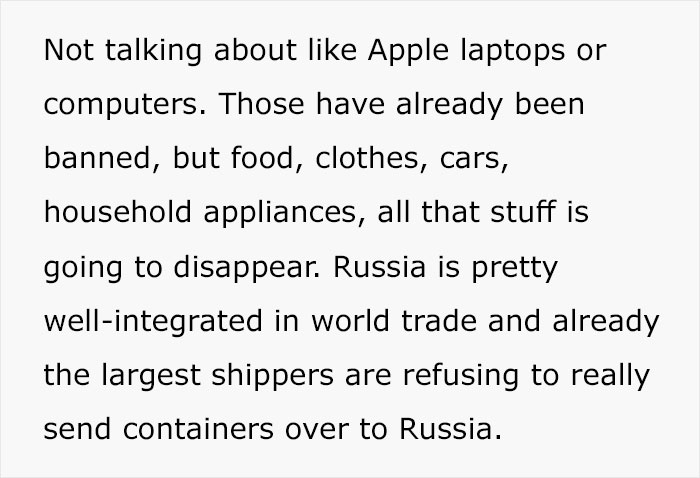
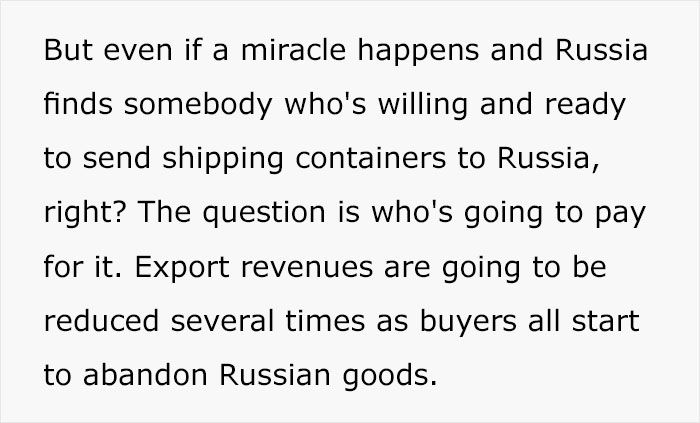
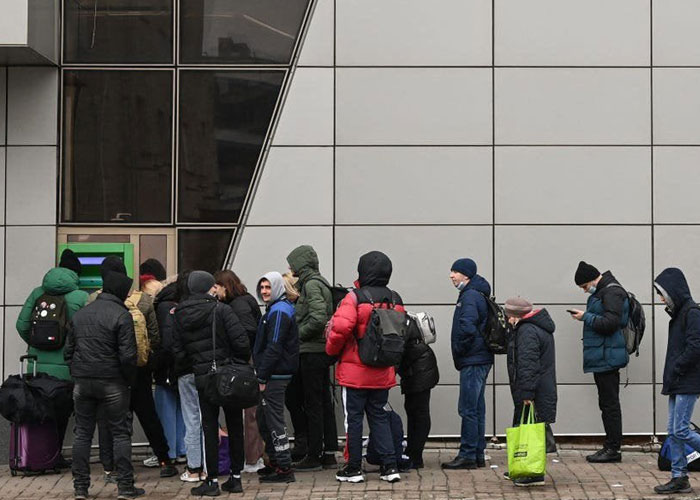
Image credits: silverguru22

Image credits: Indira-Gandhi
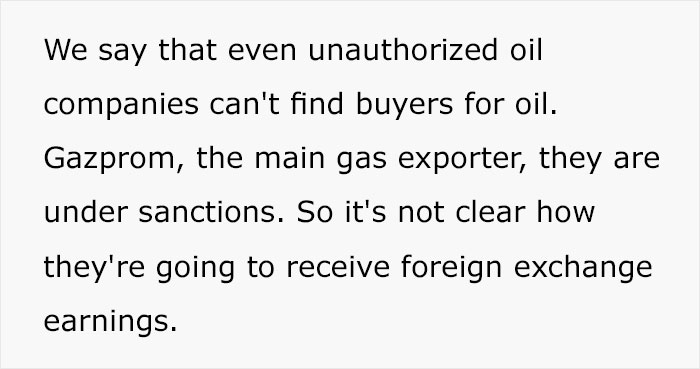
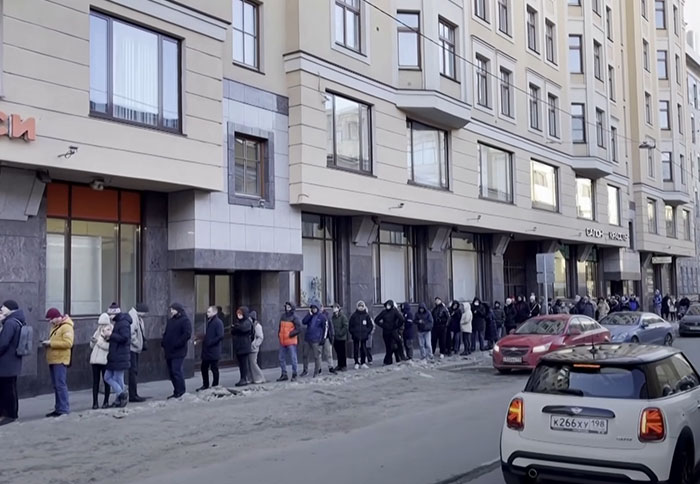
Image credits: The Telegraph
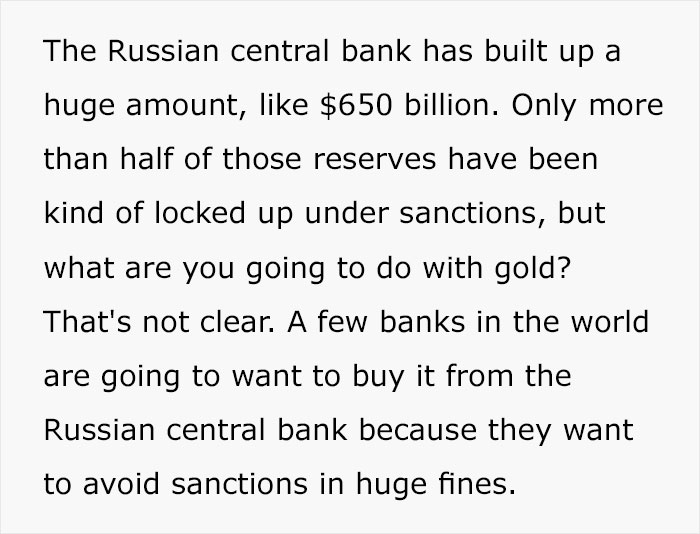
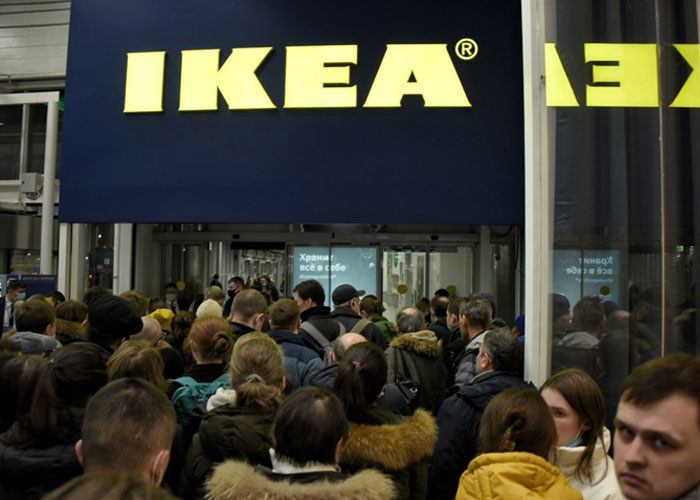
Image credits: novaya_gazeta

Image credits: novaya_gazeta
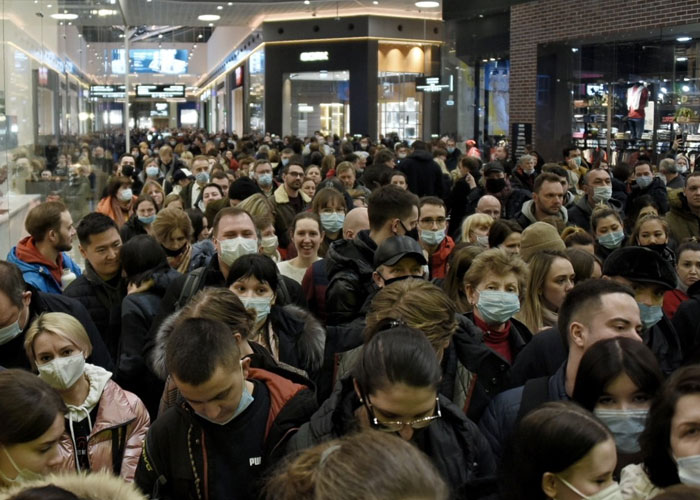
Image credits: novaya_gazeta
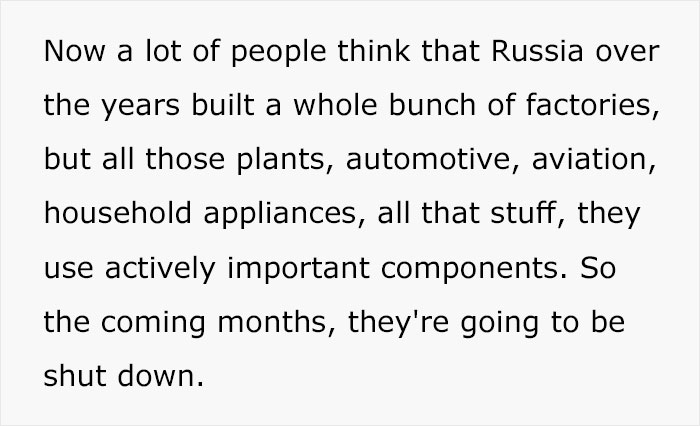
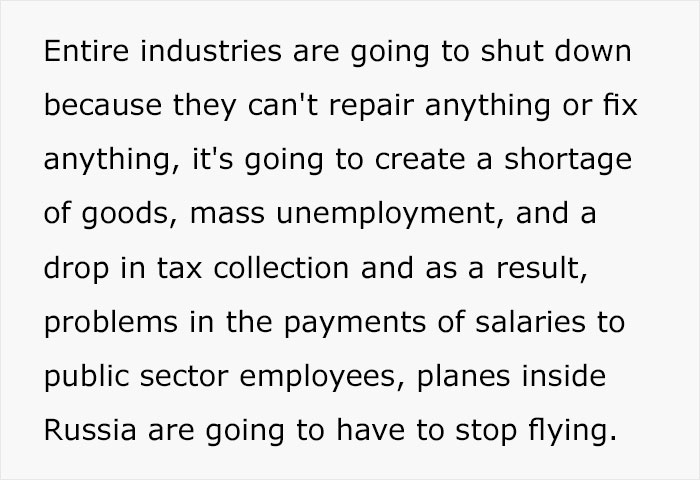
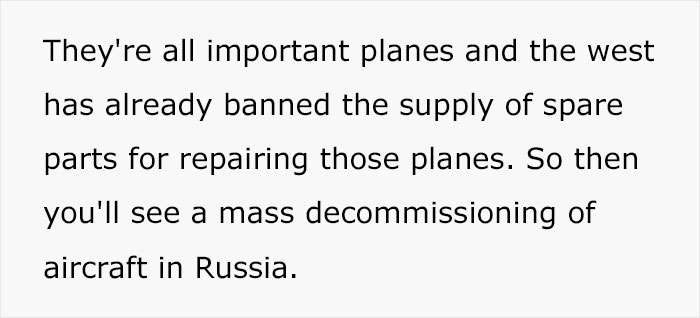
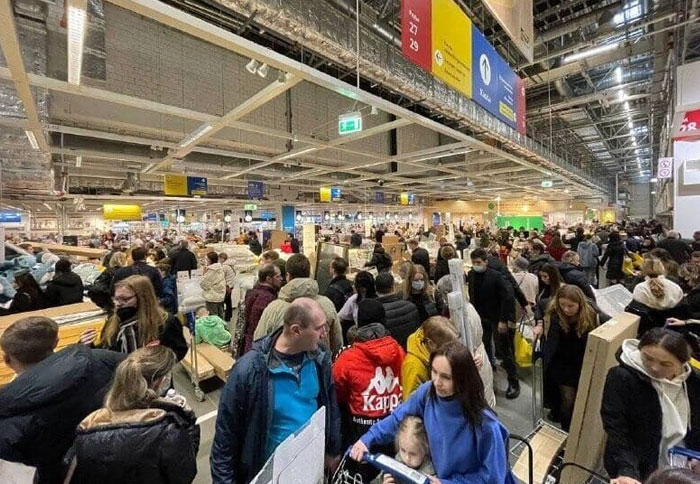
Image credits: ukrpravda_news
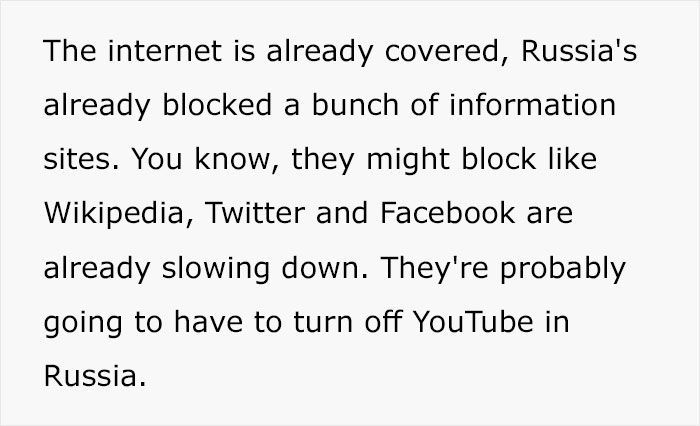
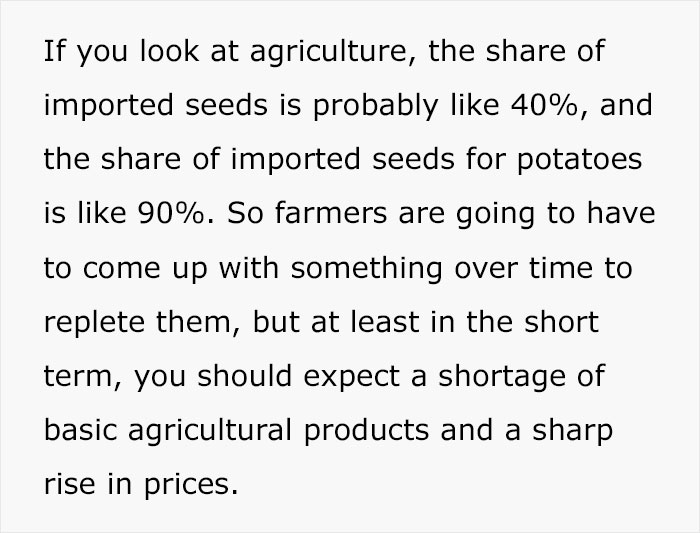
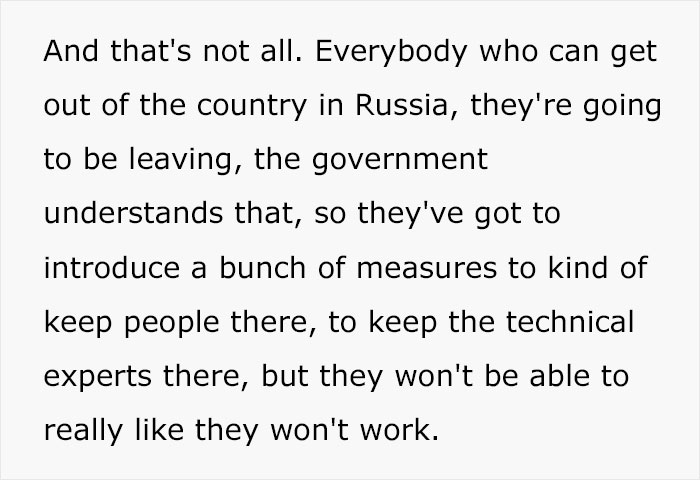
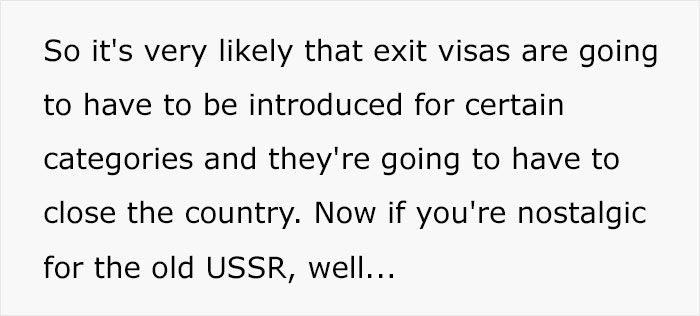
According to Phil, the sanctions will lead to a widespread scarcity of basic goods—not just luxury ones—in Russia. Meanwhile, entire industries might be severely limited or might have to shut down entirely if they’re too reliant on foreign exports… which very few countries will provide.
The economic, technological, and even cultural isolation will lead to sharp rises in prices and high unemployment levels. The latter will, in turn, reduce the amount of money the Russian regime is getting via taxation. And that will impact public officials, as well as the country’s ability to do, well, everything and anything.
The BBC reports that the economic sanctions imposed by the West are already having a direct effect on Russia. “Ordinary Russians face seeing their savings wiped out. Their lives are already being disrupted. The sanctions against some Russian banks include cutting them off from Visa and Mastercard, and consequently Apple Pay and Google Pay.”
In terms of financial sanctions, the West has frozen the assets of Russia’s central bank and in such a way limited its ability to access $630 billion of its dollar reserves. The BBC notes that the US, the EU, and the UK have banned businesses and people from dealing with the Russian central bank, its finance ministry, as well as its wealth fund.
Meanwhile, some Russian banks are being removed from SWIFT, which means that the payments that Russia gets for its oil and gas exports will be delayed.
The EU is targeting around 70% of the Russian banking market and key state-owned firms, including defense firms, with its sanctions, the BBC writes.
What’s more, the UK has stopped major Russian banks from clearing payments, plans to freeze all their assets, and will stop them from borrowing money on UK markets. Additionally, Russians making deposits at British banks will have limits placed on them.
Some of the other major sanctions include limits on products being sent to Russia, like chemicals, lasers, aircraft, and their spare parts. In other words, what’s being limited are products that could be used by civilians and the military alike.
Germany has put a stop to the opening of the Nord Stream 2 pipeline, while the West is banning Russian flights over their territories. Meanwhile, Russian President Vladimir Putin, Foreign Minister Sergei Lavrov, and various oligarchs are also the targets of sanctions. Their assets are being identified for freezing.
You can watch Phil’s full viral video right over here
@philritz1 #ukraine #sanctions #MaximMironov ♬ original sound – NYC Sustainability Phil
Joseph M. Pierre, a professor of psychiatry at the David Geffen School of Medicine at UCLA, recently explained to Bored Panda how we can fight back against Russian misinformation and propaganda online.
“The most evidence-based intervention for misinformation is ‘inoculation’ or ‘pre-bunking’ that beats misinformation to the punch. In other words, rather than only trying to cut misinformation off at its source, there’s a need to warn people about misinformation that’s out there, ideally before they ever see it,” he said. Here is an example of this inoculation strategy in use.
Dr. Pierre said that “holy trinity of truth detection” is made up of three pillars that include intellectual humility, cognitive flexibility, and analytical thinking. He went into detail about all three.
“Intellectual humility is about acknowledging that we can always be wrong and that all of our beliefs should be thought of as probability judgments, not absolutes,” he said.
“Cognitive flexibility means being able to take on other points of view and if not necessarily believing different perspectives, then at least being able to understand where they’re coming from,” Dr. Pierre added.
He continued: “Analytical thinking is […] really about slowing down and thinking skeptically before accepting information that represents what we want to believe at face value. Thanks to confirmation bias and motivated reasoning, we’re great at disbelieving the things we don’t want to believe—analytical thinking means also considering that we should disbelieve the things that we do want to believe or that confirm our preexisting beliefs and intuitions.”
According to the expert, one way to practice our analytical thinking is “by slowing down, being skeptical, and verifying before we click, share, or re-tweet.”
Meanwhile, media specialist Mike Sington explained to Bored Panda that ‘big tech’ is doing everything that it can to root our Russian propaganda on social media.
“Know that big tech is now taking active steps to minimize or eliminate Russian propaganda from all the major social media platforms. This ranges from Facebook and Instagram blocking Russian state-run media and actively stopping disinformation campaigns, to Twitter, which is removing manipulated content, and adding warning labels to Russian state-affiliated media,” he explained to us.
Here’s how some people reacted after they saw the video

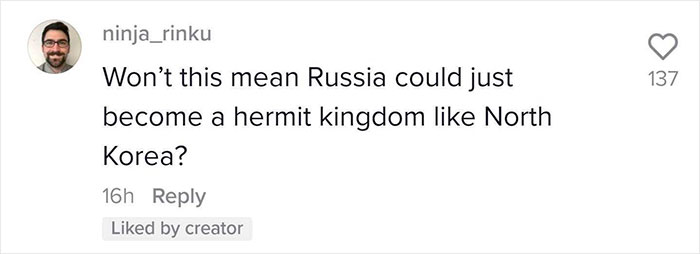

The post Scientist Perfectly Explains What Effects The Economic Sanctions Will Have On Russia After It Invaded Ukraine first appeared on Bored Panda.
from Bored Panda https://ift.tt/vqmKJDX
via IFTTT source site : boredpanda
